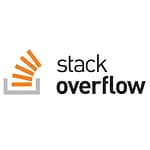13 Continuing Education Resources For Software Developers
As a software developer, it is important to be continuously learning. This blog post will discuss resources for software developers to stay current with the latest skills and new technologies in their field.
The software development field is constantly changing. As a software developer, one must understand that the industry is highly dynamic. What’s relevant today may not be useful anymore tomorrow. This volatile nature is also one of the reasons there are no limitations in the industry, only countless workarounds and solutions.
Staying ahead of the curve requires a firm commitment to a lifelong learning philosophy. This article will discuss learning resources for software developers that foster continuous learning.
Continuous Learning Resources for Software Developers
Aside from using relevant developer tools, learning resources are equally necessary for building quality software products. This compilation of resources will include books, websites, podcasts, and more. So whether you are just starting in the field or you have been a developer for years, there is something here for everyone!
Books:
The Pragmatic Programmer: From Journeyman to Master
This book by Andy Hunt and David Thomas is a classic in the software development world. It is full of tips and tricks to help you become a better programmer. Instead of systematic theories, the book presents analogies and stories that explain applicable methodologies in programming. If you are just starting, this is a great resource.
Clean Code: A Handbook of Agile Software Craftsmanship
Written by Robert Cecil Martin, this book is all about writing code that is clean, readable, and maintainable. It is an excellent resource for developers of all levels.
Clean Code is divided into three sections:
- Principles, practices, and patterns of writing clean code.
- Case studies of the progress in terms of complexity.
- Detailed takeaways from the case studies.
The reader can expect to learn how to write cleaner code and identify good vs. bad code from each section.
The Mythical Man-Month: Essays on Software Engineering
This book by Fred Brooks is a must-read for all software developers. It discusses the various issues that can arise during the software development process. Through the author’s experience in working with IBM, he was able to write essays presenting ideas on various development scenarios.
Websites:
Stack Overflow

Stack Overflow is a website where developers can ask and answer questions. It is a great resource for finding answers to specific questions or for general software development discussions.
The site has more than 100 million monthly visitors that engage in software development discussions. According to their site data, there have been over 45 billion instances a developer got help through their discussions since 2008.
GitHub

GitHub is a website where developers can share code repositories. It is a great place to find open-source projects to contribute to or to find examples of good code. Aside from code sharing, GitHub also has community discussions to help each other improve code or solve development problems. The purpose of this community is to bring together different perspectives, backgrounds, and experiences that ultimately target writing the best code.

Reddit is a website for communities organized by topic or interest. This includes a large chunk of software developers and their own community. Like the two above, Reddit is also a great place to find news, articles, and discussions about software development. Some very popular subs are r/webdev, r/programming, r/dailyprogrammer, and r/hacking.
Podcasts:
Software Engineering Daily
This podcast is a daily show that covers all aspects of software engineering. It is a great resource for staying up-to-date on the latest web development industry news and trends. The great thing about this podcast is that it is inclusive for software developers of all levels and even non-developers. It aims to disintegrate how people conceive software development as an intimidating process.
The Changelog
The Changelog labels itself as “conversations with the hackers, leaders, and the innovators of the software world.” Hosts Adam Stacoviak and Jerod Santo talk about software how-tos.
This podcast also has a community of software developers. Members get a backstage pass of everything that Changelog does. Their community discussions range from software news to solutions to branding.
Full Stack Radio
Hosted by Adam Wathan, this podcast is perfect for developers interested in building great software products. They discuss various topics such as programming languages, frameworks, and tips and tricks in navigating the software development world. Generally, this podcast focuses on practical developer learning and growth. If you are a software developer interested in improving your skills, this is a great podcast for you.
Startup Hustle
Startup Hustle is a podcast for entrepreneurs by entrepreneurs. Full Scale leaders Matt DeCoursey and Matt Watson host the show talking about topics that stretch from entrepreneurship to software development. Their latest series explains the entire Software Development Lifecycle. Be sure to tune in.
Online Learning:
edX
Created by Harvard and MIT, edX is an open online course platform that provides a wide range of university-level courses in different fields. These courses include software development and concepts. One of the best things about this platform is that it offers many free classes, mostly with verified certifications at the end.
Coursera
Founded in 2012, Coursera offers many online courses to date. They partner with more than 275 leading universities and companies to provide flexible, affordable, and relevant courses. From certifications to degrees, Coursera has something for every willing learner.
Pluralsight
Pluralsight is a privately held online education platform that offers software developers a wide range of courses. As such, most of its offerings focus on programming and development. However, they also have a variety of video training courses in IT administration, content and design production, business, architecture, and more.
These are just a few resources available to software developers for continuous learning. With so many options available, there is no excuse not to keep expanding your knowledge!
Grow Your Career with Full Scale!
As a software developer, the ultimate goal is to grow one’s skills and architect a career roadmap. The key to accomplishing this? By continuous learning through different resources for software developers.
At Full Scale, we value employee growth. We are one of the top software development companies in the Philippines. In our company, we ensure that our software developers are up to par with today’s demands and the latest technologies.
We do this by exposing developers to cutting-edge client projects. Additionally, we also have Full Scale course certifications in different coding specializations to foster continuous learning.
On top of our employee growth efforts, we also provide above-market rate salary and benefits packages, work-from-home arrangements, and bonuses! Be part of our team.



